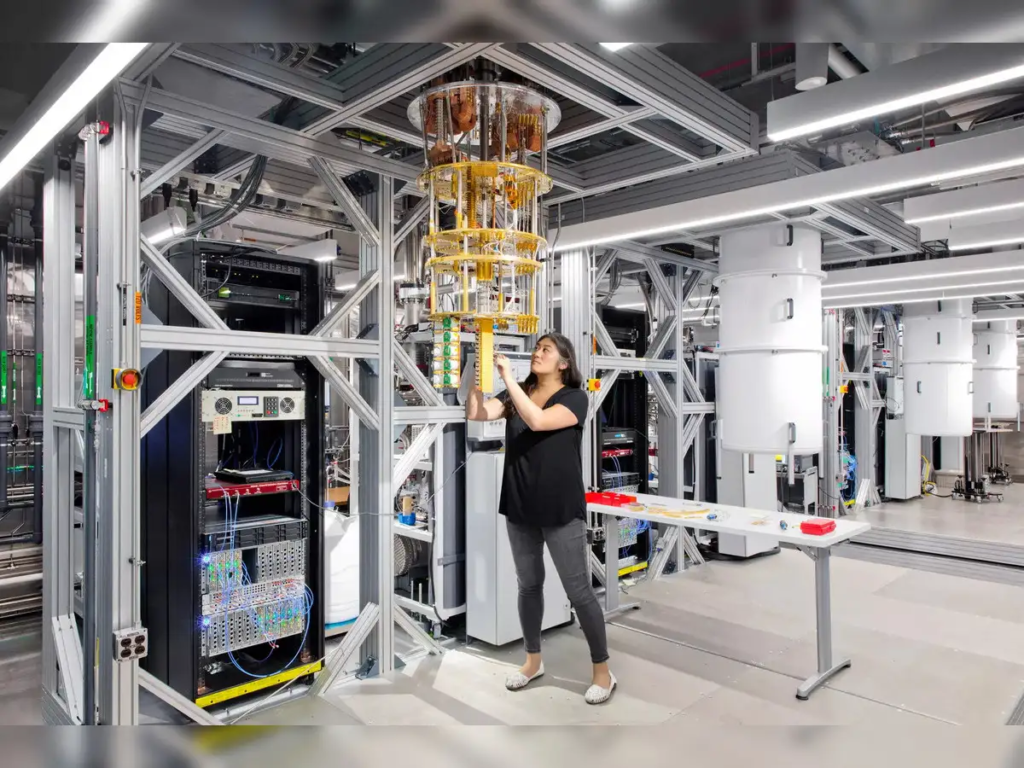Quantum computing, once only a topic in physics research labs and science fiction, is now becoming a reality in the USA. From tech giants like IBM and Google to startups and federal agencies, America is investing billions of dollars in this breakthrough technology. These developments are changing the way we think about problem-solving, data processing, cybersecurity, medicine, and more.
This article explores the current progress in quantum computing capabilities in the USA and how these innovations are opening new doors across industries.
What Is Quantum Computing?
Quantum computing is a type of computing that uses the principles of quantum mechanics. Unlike classical computers that use bits (either 0 or 1), quantum computers use qubits. A qubit can be in a state of 0, 1, or both at the same time—a concept called superposition.

Quantum computers also use entanglement, where qubits are linked in such a way that the state of one qubit can depend on the state of another. This allows quantum computers to solve certain problems much faster than classical computers.
Major U.S. Companies Leading Quantum Progress
IBM
IBM has been at the forefront of quantum computing in the USA. It has developed multiple generations of quantum processors and even offers cloud-based access to quantum machines through IBM Quantum. In 2023, IBM launched a 433-qubit processor called “Osprey,” which is among the most powerful publicly available quantum systems.
IBM plans to scale up to over 1,000 qubits by 2025 and aims to launch error-corrected quantum systems for commercial use soon. You can read more on their progress via the IBM Quantum Research page.
Google made headlines in 2019 when it claimed to have achieved “quantum supremacy”—solving a problem that would take classical computers thousands of years. Today, Google continues its research through the Quantum AI lab, working on building reliable and scalable quantum systems.
Google’s long-term vision is to create a 1-million qubit quantum computer by the end of this decade.
Microsoft
Microsoft’s approach is different. It focuses on topological qubits, a type of qubit that is expected to be more stable and less prone to errors. Its Azure Quantum platform already offers developers access to quantum tools and simulators.
The Role of U.S. Government and Academia
National Quantum Initiative Act
In 2018, the U.S. government passed the National Quantum Initiative Act, which promotes federal funding for quantum research. This law supports research at institutions like MIT, Stanford, and the University of Chicago, among others.
Department of Energy and National Labs
The U.S. Department of Energy (DOE) has launched Quantum Information Science (QIS) Research Centers, such as Fermilab and Oak Ridge National Laboratory. These centers focus on building quantum infrastructure, developing new materials, and enhancing quantum algorithms.
Applications of Quantum Computing in the USA
Cybersecurity and Encryption
Quantum computing poses both risks and solutions for cybersecurity. While it can break traditional encryption algorithms, it can also create new, quantum-resistant algorithms. The U.S. National Institute of Standards and Technology (NIST) is currently working on post-quantum cryptography standards to prepare for this shift.

Drug Discovery and Healthcare
Quantum computers are helping researchers simulate molecules more efficiently, making it easier to design new drugs and understand complex diseases like cancer or Alzheimer’s. U.S.-based biotech firms are now partnering with quantum labs to accelerate the drug development process.
Financial Modeling
Wall Street firms and financial institutions are exploring quantum computing to optimize portfolios, analyze risk, and detect fraud faster and more accurately. Companies like Goldman Sachs and JPMorgan Chase are investing heavily in quantum research.
Climate Modeling
Quantum computers can simulate environmental systems with unmatched detail. U.S. researchers are using this power to predict climate changes, study carbon capture techniques, and optimize renewable energy distribution.
Challenges Still Ahead
Despite the excitement, quantum computing in the U.S. still faces major challenges:
- Error Rates: Qubits are extremely sensitive to noise and interference, which causes computational errors.
- Scalability: Building quantum computers with millions of qubits is a technical mountain still to climb.
- Cost and Accessibility: Quantum computers are expensive and require extreme conditions like absolute zero temperature.
However, with strong government backing, private investment, and global competition, these challenges are being addressed rapidly.
Startups and Emerging Quantum Hubs
Apart from big tech, several U.S. startups are also making headlines:
- Rigetti Computing (California) is developing superconducting qubit systems and hybrid quantum-classical platforms.
- IonQ (Maryland) uses trapped ion technology and is publicly traded, becoming the first pure-play quantum computing company listed on the stock market.
- PsiQuantum (California) is working on building a 1-million qubit quantum computer using photonic technology.
Cities like Boston, San Francisco, and Chicago are emerging as hotbeds of quantum innovation.
Future Outlook
The next 5–10 years are critical for quantum computing in the United States. The focus is now shifting from theoretical potential to practical use cases. Companies are forming quantum-ready teams, training talent, and investing in cloud-based quantum platforms.
According to experts, by the 2030s, quantum computing could become mainstream for solving specific problems in sectors like AI, logistics, supply chains, and pharmaceuticals.
Final Thoughts
The progress of quantum computing in the USA is nothing short of revolutionary. While it’s still in the early stages, the investments, collaborations, and innovations are shaping the future of technology. Quantum computing could soon impact every part of our daily lives—from how we treat disease to how we protect our data.
To learn more about the latest advancements, visit IBM Quantum Research and Quantum.gov.
Also Read – Why Millions in the USA Still Struggle for Clean Water






